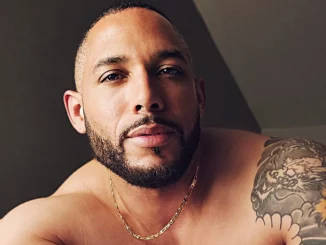
By Staff
Tell us about your consulting services/company.
ICF International, Inc. is a global consulting and technology services company that provides various services for governments and businesses, including strategic planning, management, marketing, and analytics. ICF helps clients solve complex challenges that shape daily life. The company combines deep domain expertise with leading-edge technologies, advanced analytics, and human-centered practices to help educate, design, and implement transformative projects across highly diverse industries, including utility consulting, disaster management, climate, environment, and infrastructure services, IT modernization/digital transformation, and federal health.
Tell us about your education, certifications, and training.
Stephanie Gibson Simmons is a skilled educator who has devoted over 25 years to the Early Care and Education field. Her educational experience involves providing training and professional development support to administrators, teachers, children, and families, guiding them through the crucial early years from prenatal to age 5. Stephanie’s journey is described by an unwavering commitment to developmentally appropriate research-based practices, encouragement, and inclusivity, ensuring that every educator, child, and family’s unique needs are met with integrity, understanding, and compassion.
As a teacher/post-secondary educator/trainer/speaker, Stephanie shares the latest research-based practices and adult learning principles with aspiring Early Childhood and Early Childhood Special Education educators. Through her mentorship, she has guided teachers through the complexities of the profession. In her work with administrators and educators, she emphasizes the value of report building for successful parent-family and community engagement. Also, the importance of understanding early brain development as it relates to trauma-informed care, screening, and assessment tool fidelity for understanding developmental milestones, curriculum implementation, social-emotional development, and collecting and understanding data for program improvement and strategic planning.
Stephanie’s hands-on classroom experiences are shared when speaking at conferences and consulting, ensuring equitable practices and mental wellness are integral to her toolkit to combat and provide encouragement for teacher burnout. Her deep commitment to inclusivity and diversity is evident in her work with early intervention children with disabilities, dual language learners, and children and families from migrant backgrounds. As a center director, she understands the complexities of balancing staff and quality care practices. Stephanie has built a body of work that fosters inclusive environments where all children feel valued and empowered. She shares her passion for the latest brain development research on early trauma-informed care, further demonstrating her commitment to advocacy and professional development.
Stephanie’s qualifications and certifications are a testament to her expertise and dedication. She holds a master’s degree in early childhood education/early childhood special education from The University of Colorado at Denver and a Bachelor of Science degree in Psychology with an emphasis in Special education from Central State University. Stephanie works at ICF International as a Consultant, providing Training and technical assistance for an Early Childhood federal health and human services government contract. Ms. Simmons served as a post-secondary educator, center director, and Early Intervention specialist. Her certifications include the PITC Program for Infant/Toddler Care, Teachstone CLASS, and QCIT observation tools. She is certified in Mental Health First Aid (MHFA), Certified Family Trauma Professional (CFPT), and PD Specialist with the Council for Professional Recognition; additionally, Ms. Simmons is designated as a Level III Early Education Trainer for the Georgia State-wide DECAL Program. Stephanie previously served 10 years as a licensed Early Childhood Special Education Teacher, where she was awarded the Excellence in Education for Early Childhood Education.
Stephanie’s efforts to strengthen the foundation of early childhood education are commendable and awe-inspiring. Her legacy is not just in the knowledge she imparts but also in the hearts and minds she has touched, leaving an indelible mark on the landscape of early childhood education.
It has been proven that children learn differently. How can parents find the necessary resources to support their children.
Yes. All children learn differently. Early childhood is a period of rapid growth developmentally, socially, linguistically, and academically. Parents and caregivers are the most important and influential teachers in forming a young child’s brain at this crucial time. It does not take apps or videos to influence a child positively in the early years. Children from birth to age are like sponges, soaking up the world around them. Their brains make many connections, and every social-environmental interaction impacts their young lives.
During this time in a young child’s development, it is essential for parents to understand early developmental milestones and track their child’s progress. Developmental milestones build upon one another in the early years of life monthly and give parents and caregivers a guide to see areas of growth in their child. Within these milestones are five important essential developmental domains that parents can assist parents in identifying possible areas of need. These developmental domains show specific areas of growth and progress for a young child. The domains are Adaptive learning, social-emotional, Language, Cognition, and physical development. Babies can demonstrate some of these specific domains from the day they are born. Babies will develop and show growth at crucial periods of their rapid development when the brain can acquire new information more readily. Of course, all young children develop at their own pace and in their own time.
Some parents may notice their child is not meeting developmental milestones as expected and suspect a delay in growth and development. This means that their child may be developing certain skills slower than their peers. Should a parent suspect a delay, they must first contact their pediatrician. Suspicions of delay can only be diagnosed by a physician. Some developmental delays can be isolated delays. However, if your child exhibits two or more delays within a developmental domain, they may be diagnosed with a global delay. However, a young child may catch up with early intervention and support.
Early intervention services provide a multidisciplinary approach to evaluating and determining whether infants and toddlers are eligible for services to help with developmental delays and disabilities. These programs offer service coordination to assist infants and toddlers in overcoming developmental delays within the five essential developmental domains.
Access to early intervention services should be identified in the child’s Individualized Family Service Plan (IFSP). Therapies may include speech, occupational, and physical to support infants and toddlers under the age of three with growth and development. Concerned parents do not need a referral from a physician to access this support. However, referring children with delayed development or established risk factors should be prompt. State funds are available on a sliding fee scale to assist families who may need additional assistance. Families can collaborate with a care provider to coordinate services to create goals and ensure that goals are met. Periodic ongoing counseling supports the family regarding the child’s progress and treatment options.
Recognizing areas of need in your young infant can be challenging. However, it’s crucial to understand that early intervention services are available to provide support and care to parents during this critical time in development. These services can help an infant or toddler reach a growth area or skill they may be behind in. While it may be difficult to accept and acknowledge where their children are, parents must be honest. Early intervention services can also offer a level of encouragement and support for parents, as well as guide them through the possible advocacy process for their infant or toddler.
Should you need services in or around the Atlanta area, several can provide you with the care, attention, and support you require.
Here is a list.
Southwest Atlanta
Children 1st (Georgia Department of Health)
Children’s Medical Services
Next Steps ‘Babies Can’t Wait-Early Intervention
Early Intervention Easter seals
(list not exhaustive)
*There are several other areas where children learn differently. I could write six more pages on behaviorally, getting into specific diagnoses, like Autism, Asperger’s Downs Syndrome, or other co-morbidities, early childhood trauma, or learning differently as a dual language learner and the exceptional benefits it can have on a young child’s brain if they are supported effectively.
I also considered Montessori education, which supports the child’s free-thinking and problem-solving and supports a child’s natural interests and learning, or Howard Gardner’s theory of Multiple intelligences, which lists the differing all ways young children learn.
But I think you get the gist.
( I can nerd out on this stuff)
How does your expertise enhance the education system that impact children?
My professional career experiences, knowledge, and passion enhance the education system that impacts children in countless ways. My understanding of child development within the crucial ages of birth to age 5 is invaluable in supporting the educational practices that contribute to the various needs of infants and toddlers. Early Childhood care and education isn’t going anywhere; childcare necessary. With 10 years of experience as a classroom teacher, I understand the intricacies of supporting teachers in creating learning environments that support children with special needs and linguistic responsiveness for dual language learners so they can thrive alongside their peers. My expertise is pivotal in understanding and advocating for integrated, inclusive programming that can support children with different needs and abilities, differing cultures, and across socioeconomic, racial, and linguistic backgrounds. Having empathy and understanding for all the children in the classroom is an approach that is understanding, inclusive and impacts all children. With this understanding, I can support aspiring administrators and teachers in impacting their programs and classrooms in the same way.
With my experience as a Childcare Center director, I also understood the need to provide quality care and education for the children I serve. In choosing the appropriate curriculum that best meets the needs of all children in the program. Staffing adequately and supporting staff in providing adequate training and professional development so they are ready to be supportive of children in the classroom. Understanding fiscal responsibilities and budget management. Meeting required state requirements, ratios, lesson plans, safety, and facility regulations. Providing information on the importance of assessment and the need for data for program, classroom, and early education developmental improvement. The importance of parent, family, and community report building for increased and sustained supportive program engagement,
I am a knowledgeable post-secondary educator; my ideology is built on seminal developmental research theorists like Froebel, Vygotsky, Piaget, and Erickson. These theorists laid the groundwork for recognizing the importance of play-based education, sensory experiences, early learning cognitive developmental stages, and the hierarchy of needs that must be met for adequate growth and development. Their contributions can lead to more equitable, high-quality educational experiences for all children, laying a strong foundation for lifelong learning and success. Knowing these early developmental principles, I understand the importance of creating caring, responsive learning environments by incorporating these early developmental principles to support the intentional individual needs of children. Further, I know how these early developmental theories impact life past the early years into adulthood. I understand how early brain development and if affected by traumatic occurrences early on can have a devastating impact on a child’s development as they grow and learn. I understand how unsupported early social-emotional development may lead to lessened emotional intelligence in adulthood. Early childhood development affects a person throughout their lifetime, not just between birth and age 5.
My passion speaks directly to the teacher or administrator addressing the support for mental wellness. The teaching profession is a respected one. Whether you are an administrator or educator in the pre–K–12 classroom or post-secondary education, teacher burnout and exhaustion should be acknowledged and addressed. The changing face of education is here. Educators are challenged with navigating a myriad of emotional complexities within work expectations and daily life. Some administrators, teachers, and directors work long hours to prepare to meet the expectations of curricular rigor with unmatched compensation. Teachers are constantly asked to prove themselves with annual testing and regular professional development, sometimes outside working hours. The educational profession has limited areas for progression, and opportunities for professional growth are often restricted. The demands of the job may create high levels of stress. In addition, despite their vital role, teachers lack reciprocity of recognition for the care, attention, and services they provide. This thusly impacts the children they serve.
Everyone, no matter the profession, wants to feel seen, heard, valued, understood, and respected. With this understanding, we must foster a supportive work environment, so all educators feel safe and valued. We must create working environments that build belonging and encouragement. We must also provide and advocate for resources and strategies to support the mental health of educators. We must provide opportunities and promote self-care practices, ensuring they can access mental health services and support. I leveraged my knowledge to survey the unprecedented changes to the ECE landscape caused by COVID for our children and families. During the pandemic, it became crucial that we advocate for policies and wages for those who provide care for our children. Additionally, there is an ever-growing need for programs that are accessible and affordable for families, ensuring that all children, regardless of their background, have access to high-quality staff and care. By supporting the mental wellness of our educators, we, in turn, ensure that they bring their best selves to the children they provide care for in the classrooms for the best outcome for all.
When speaking to professionals in the education field, I use my unique blend of experience, passion, and knowledge to deliver transformative insights that resonate deeply and challenge conventional thinking. This approach will significantly benefit the children they serve.
What does success look like for you?
Success looks like my life is filled with love, joy, laughter, and financial abundance.
Success looks like the comforts of home, stability, and compatibility.
Success looks like working smart, not hard, and doing my best.
Success looks like believing in myself and working my faith.
Success is the freedom to travel and understanding the difference between needs and wants.
Success is knowing that no is an acceptable answer.
Success looks like being a respected early educated professional, speaker, consultant; supporting others in this field so they, too, feel seen, heard, understood and, valued.
In the next five years, what can people expect from you professionally?
I want to write my first book or two… with-in the next five years.
Within the next five years professionally, I’d like to beinvited to speak at different events around the country speaking on the importance of Early Education from birth to age five on topics such as equitable practices, early childhood bias, educating black young boys, the impact on social demographics, social norms, and outcomes, mental wellness for educators, brain development research, trauma-informed care, and building rapport with parents and the community. Conduct interviews explaining and advocating for the importance of quality early care and education. Publish articles in magazines. I’d like to be a keynote speaker in the next 5 years.
I would like to create, collaborate, and host an annual National Teacher of the Year Event in the next five years. At this day conference, these distinct educators are collectively invited to participate in an interactive conference where their voices are heard and recognized. An event where they can share their unique prospects related to Technology, Early Education, STEM, The Arts, Socio-Cultural Perspectives, and the World. Invite TED & TED-X speakers to influence their educational perspectives. A collective where they get to advocate for themselves, their schools, and their community and is heard by state and local officials. It is an event so distinctively orchestrated that it impacts the face of education that lawmakers look forward to hearing the ideas that transpired at this annual conference.









